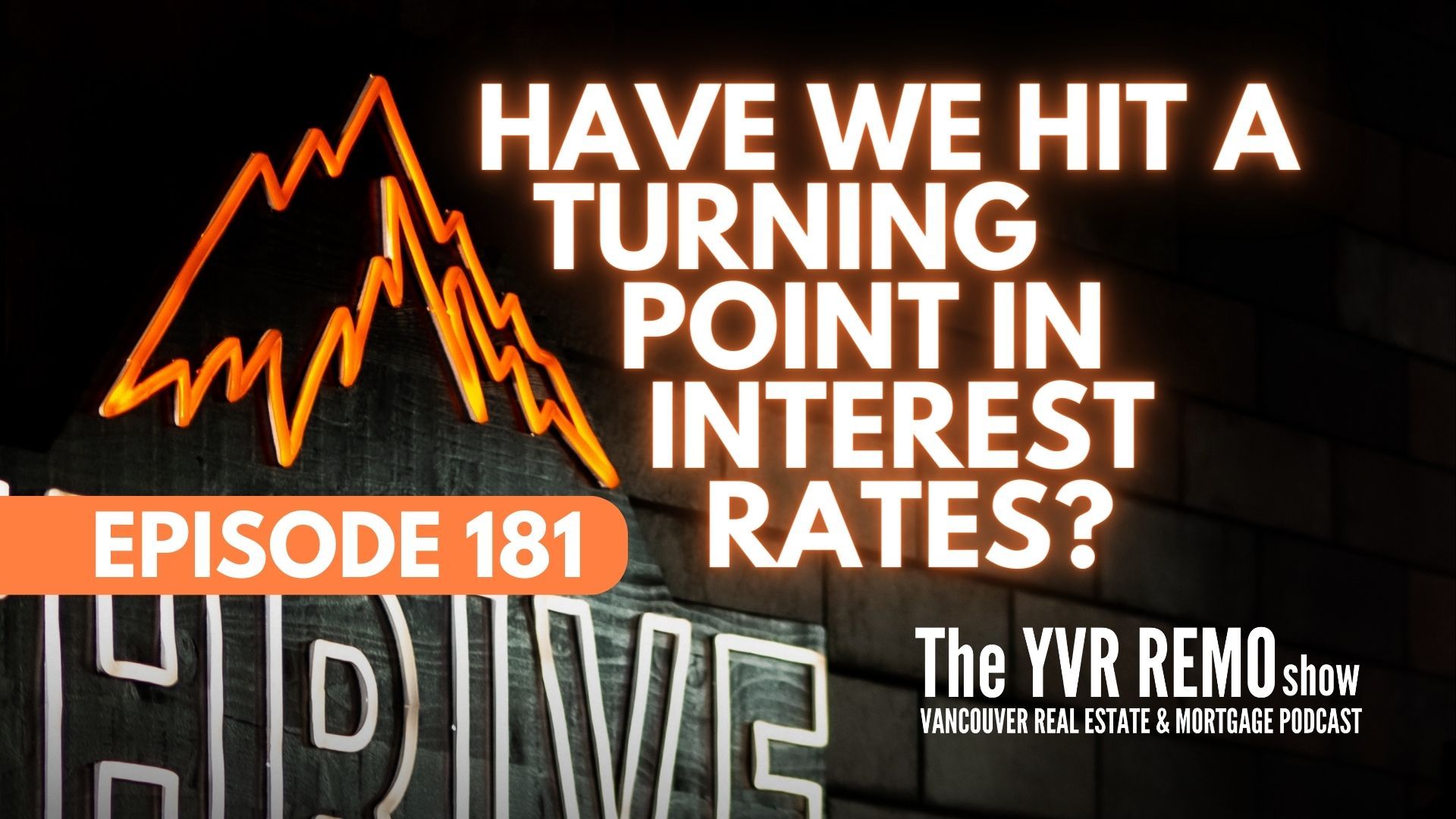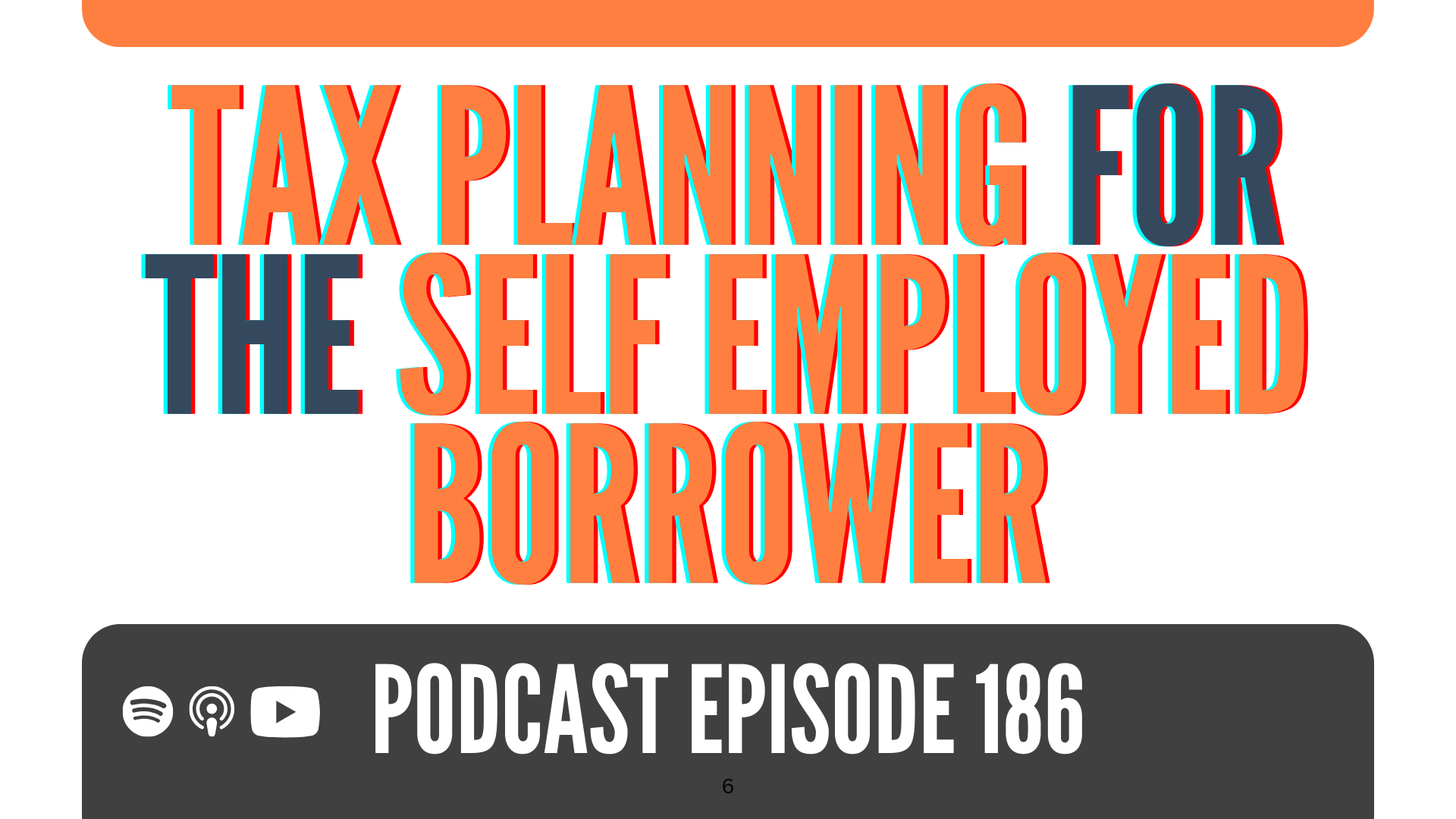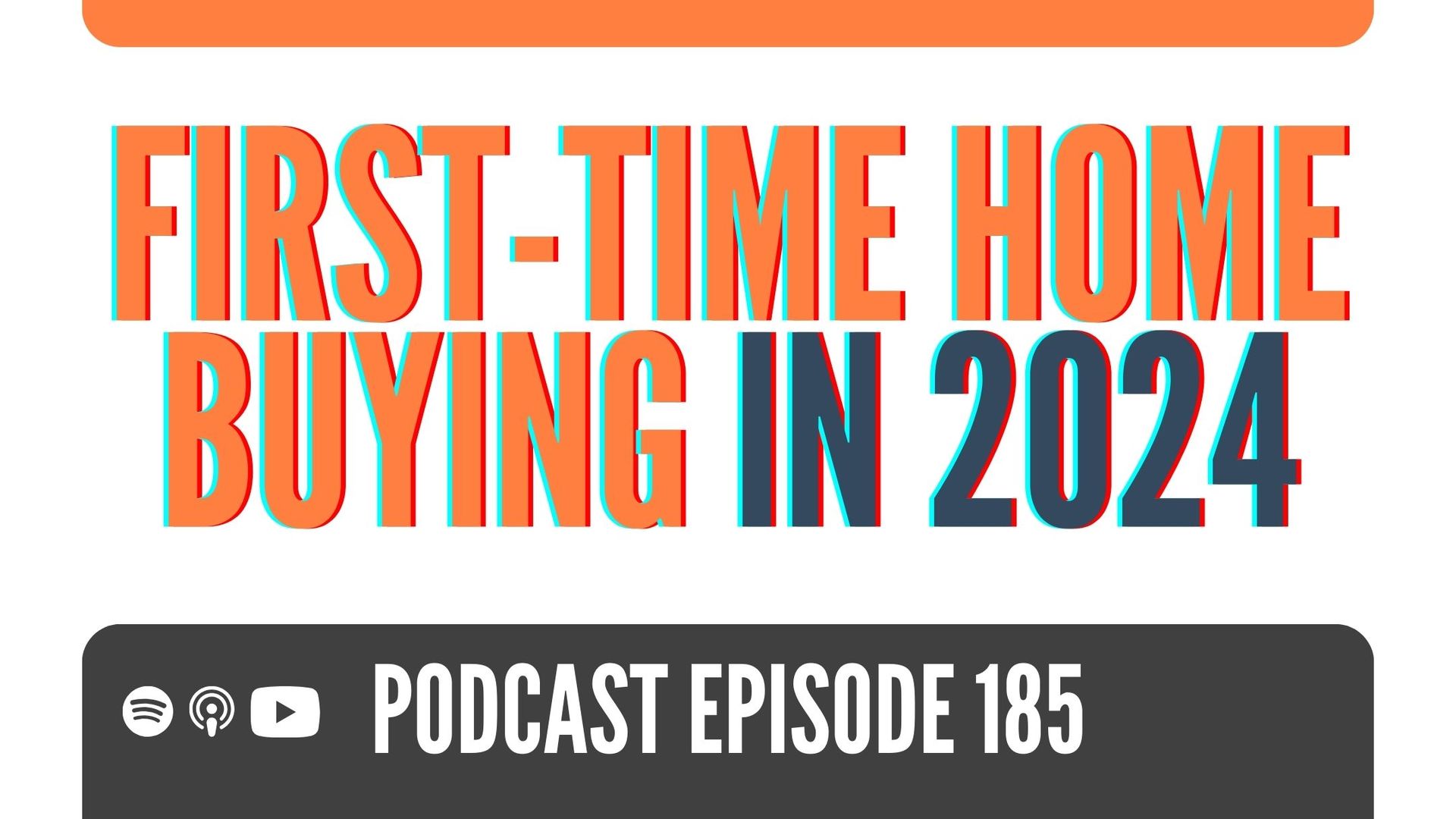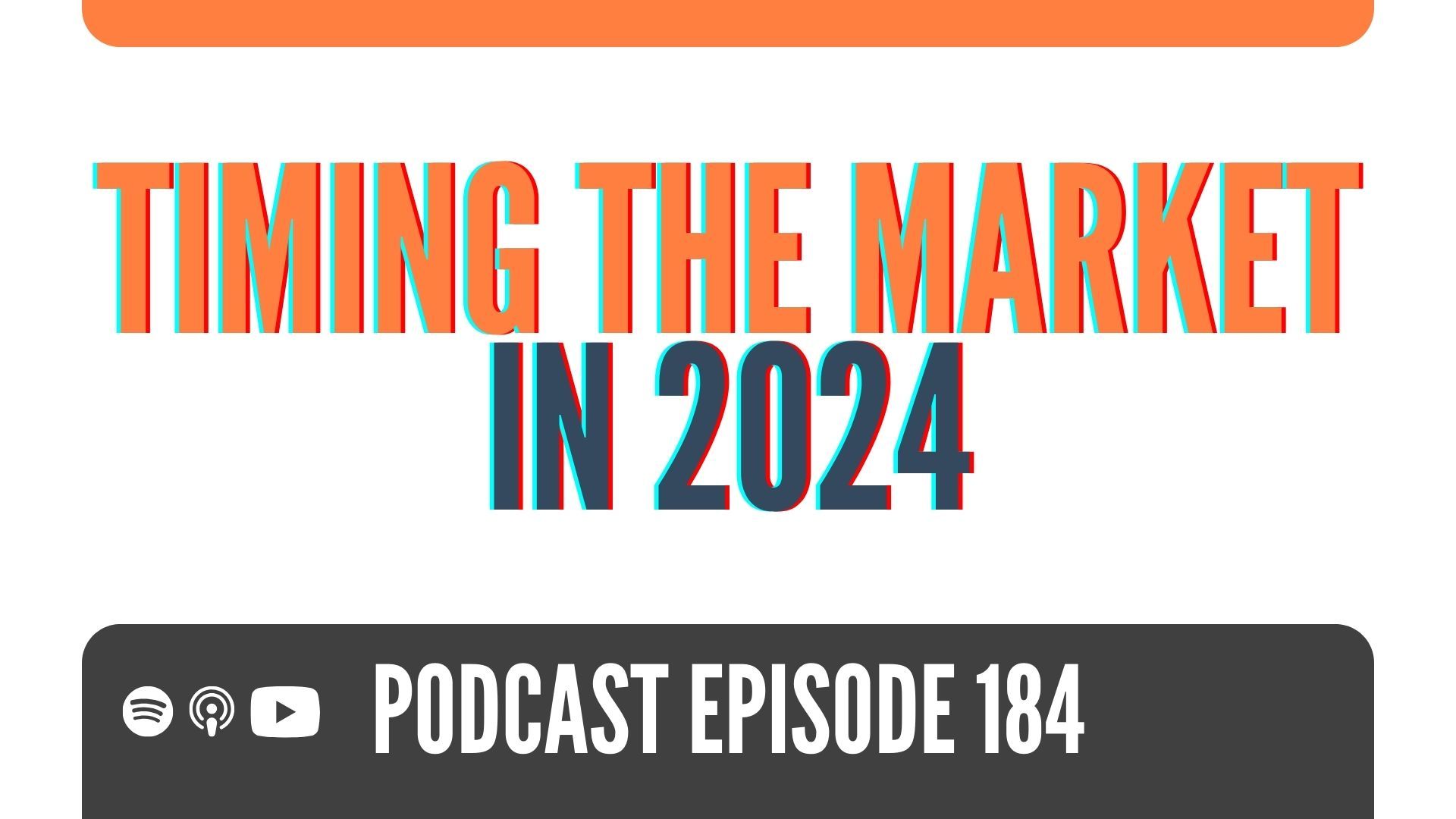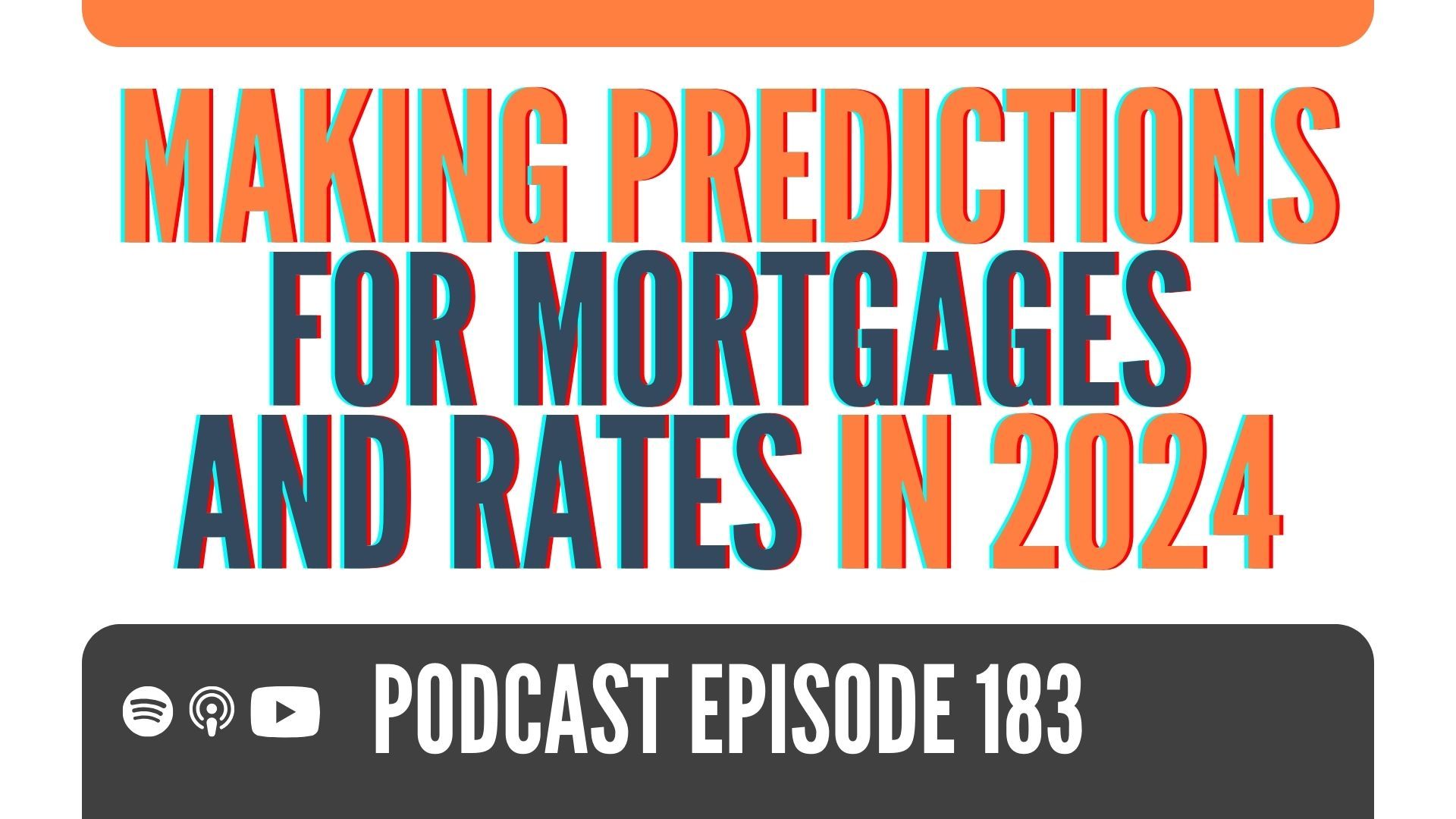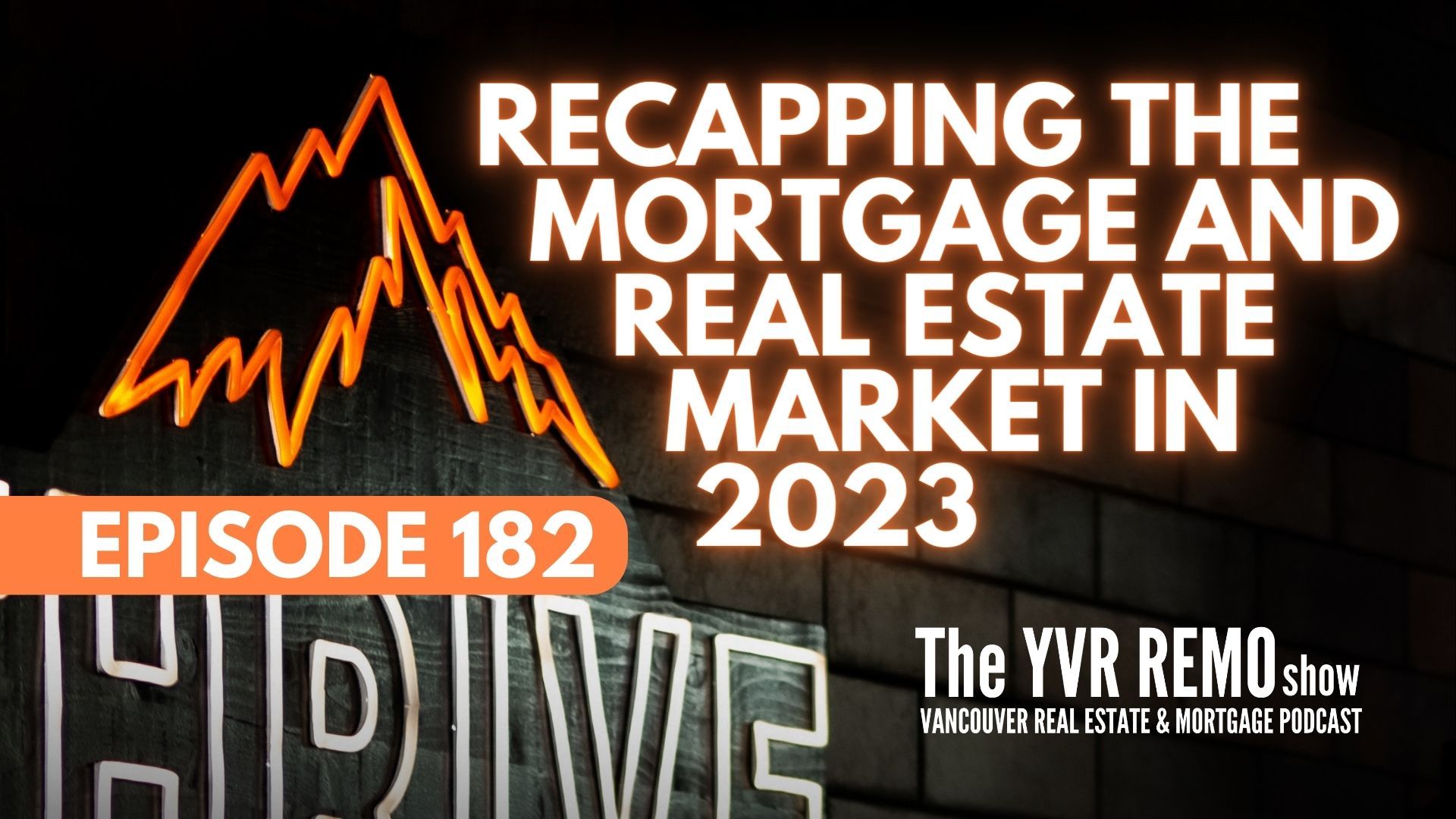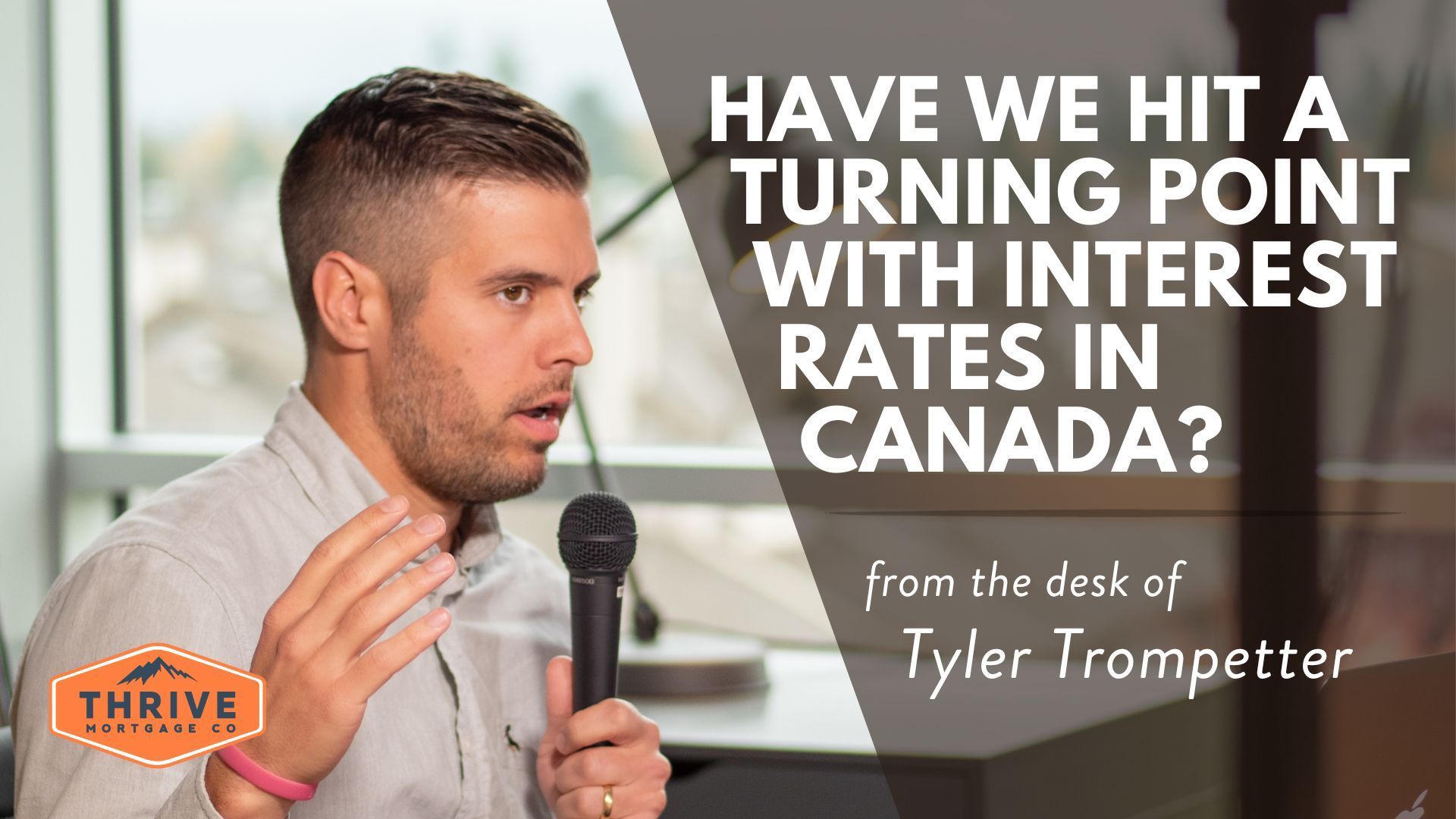YVR REMO Show Episode 75 - To Port or Not To Port?
Are you planning to port your mortgage to a new property?
Alex McFadyen
We're seeing a lot of families moving homes to different locations all over Canada. When we get into the summer months, we do a lot of purchases. We've seen a lot of clients upsizing. One of the first topics that always comes up in that process is about the idea of porting your mortgage.
If you don't know what porting is, it's the idea of taking your existing mortgage on your current residence and transferring it over to another property. There's a ton of misconceptions around how it works.
Who can do it?
When would you do it?
Why would you do it?
To be honest with you, with the amount of questions we've had this year, I'm surprised we haven't done this podcast earlier. It's definitely one of the most misunderstood parts of the moving process.
Deryk Williamson
A lot of people think it'll be easy and painless. There's a lot of reasons why porting doesn't work. There's scenarios where it actually can't work. We typically tell people not to bank on that when you're going into a fixed rate product.
Alex McFadyen
The first thing that comes up is the most common when you're porting from one property to another property.
People assume you don’t need to fill out an application, qualify, or go through the stress test. They think you can basically call the bank and ask to port. They'll run some numbers, which is honestly no different than when people call the bank and ask what they are pre-qualified for.
The biggest misconception is that you don't need to qualify. That's just not the case
Deryk Williamson
Another reason that thought lingers is you already have that mortgage in place. You've already qualified for it and you're making your payments. Why would you have to re-qualify for the same mortgage?
That's not the way that banks look at it at all when you're making a transition. One thing to keep in mind is typically, when you're porting, it's very rare that you're just porting that exact mortgage balance to the next property. It's usually somebody upsizing or downsizing. Increasing that mortgage is what we primarily see when people are porting. The minute you add one more dollar to a mortgage, you always have to qualify, so just keep that in mind.
A lot of people think that it'll be a quick and painless process. We've actually had some real estate agents suggest to their clients that they can go in no subjects because the realtor at the same time saw that there was no qualification. You just have to keep in mind that when you applied for that mortgage, your employment status may have changed and you no longer qualify for that specific mortgage. You have to go through the same pre-approval process. If the penalty is massive, we can actually do that with your institutions internally. Mortgages are the complete opposite nowadays, there's a lot of homework that you have to do prior.
Alex McFadyen
A lot of that comes back to a lack of knowledge around how the porting process works. I don't know why real estate agents tell their clients that they can just port over. If you're a real estate agent, make sure they go through the qualification. We deal with this like a true pre-approval. We start the file from start to finish with a full application, documents, and credit report. How many times have you seen it where someone actually qualifies but then you pull up their credit report and find they have a new car loan. Now they don't qualify. We see that all the time.
Deryk Williamson
If you're a realtor, this episode will teach you a lot about why clients might not be able to port, there's much more than just the qualification itself.
Alex McFadyen
I found that ports actually take longer than new mortgage applications because that goes to a different department which is typically slower. On the broker side, we don't actually have as much contact with them like we would for a purchase application. They don't seem to have as much pressure on the timelines or as much concern.
Deryk Williamson
Part of that is there's more administrative work. For example, they're taking an existing mortgage with 23 and a half years left at a 2.79% rate and have to blend it with an extra $147,000 of a 3% rate. There's just a little bit more work for the lender to actually calculate all the numbers and process that approval. I would say it's not anywhere near as quick as a standard purchase. We're still typically getting them done in subject periods if we need to.
Alex McFadyen
It's just that extra day or two. That makes a difference.
The other thing to note about the porting process is that a lot of times people actually have to pay their mortgage penalty when they are selling/buying and doing a port process. There's a variety of reasons behind it. One of them is that the dates don't always line up so that maybe you need a bridge. Another one could be that someone sold and not bought right away. Some lenders have the ability for a client to port up to 90 days later. It's also important to note that they don't all do that in a case by case scenario. Each lender has its own timeline at which you can actually start up your own mortgage. A lot of times you have to pay it out when you close and then you get reimbursed. If a client doesn't have the budget to do that, which is often the case, they can't port. Typically, when someone's porting it's because there's a massive penalty.
Deryk Williamson
When the penalty is reasonable, it's small, it's a few grand. Someone is typically going to pay it but there might be better options there. If it's a $30,000 penalty and you're not aware of this, if you don't have access to that cash it's a pretty bad position to be in. We've seen a lot of people scrambling at the last minute when the bank didn't explain this to them.
If you're porting because the penalty is high, you have to figure out if you're going to have to pay that penalty in full and get reimbursed later. You have to account for that money.
Alex McFadyen
Another common misconception is it's going to be cheaper to port a mortgage, it's going to save me money. This is not always the case. In fact, these days with the interest rates being as low as they are, it's very common that it’s not the case at all. The problem is that most people don't have an educated adviser to spend the time and the energy running the numbers. You can bet the banker will not run those numbers for you. Typically, it's up for the client to make that decision unless they're working with a professional like us that actually breaks it down and shows them the numbers. I would say in most situations, especially if someone bought three years ago, it actually makes sense for them to break the loan.
Deryk Williamson
A lot of people look at a $10,000 penalty and there's just no chance that an interest rate could recoup that amount of money. We have countless clients that we've saved $50,000 by restructuring their mortgage in the last year while rates have dropped. Some of these people are paying $9,000 penalties but over the remainder of their term of four years. There's some dramatic savings there. We run these numbers on every single application that comes through. Our team makes sure that we know and we're putting the client in the best possible position and outcome. Another big thing is figuring out the numbers and seeing if it makes sense and if it doesn't, it's okay, you just port.
Another thing that people don't really think about is, you want to save money, but is there any other benefit in paying that penalty?
Even if you're not going to recoup that full penalty on interest rate savings, is there any other benefit? Does it make sense to increase to pay off some debt?
There's so many other situations that you have to consider. If you're at a fixed rate and you lock into another five-year fixed on your port, you're going to be in the same situation over and over again if you continue to move or need to break your mortgage.
Alex McFadyen
This is just a constant conversation that we have in general about knowing your numbers and knowing your scenarios. More importantly, that percentage point that you're looking at isn't how you shop for a mortgage. Most people just google something up, they see a price point, and that's what they go for. We know some great bankers but they don't really have any additional incentive to make sure that you're in a better situation for them.
Know the numbers, make sure you run the scenarios and understand if it makes sense. You can't re-amortize alone. A lot of people are going from a townhouse to a detached house or things of that nature where there's more money required. When you do that, you often get to take on a bigger mortgage. That equates to a big bump up in your payments. You could go to 30 year amortization versus what you have left, which is 23 years, and that could knock down your payment by hundreds of dollars a month.
Deryk Williamson
That penalty scares people into porting all the time. You got to look at the numbers because the right numbers will tell you.
Alex McFadyen
I had a conversation like this yesterday with a client. They were like, I can't port so I can't move, it's not even an option. We showed them how taking that amortization period up allowed them to borrow the extra $200,000 to actually get that home. So from that perspective, it wasn't necessarily about just the porting option but can I upgrade my home? They didn't know it was an option.
Deryk Williamson
Someone comes to us, and they might be with TD Bank. They have a hefty penalty and they want to get out of their townhouse and get into a detached home, maybe with a basement suite. When we run the numbers with a TD Bank qualification, just as an example, maybe they're hitting a million dollar price point with their bank. If we take them to a credit union that has a better rental policy to utilize that rental income, maybe we can get them to a 1.1% or 1.2%, which is what they need to qualify. You never really know, no one can predict the future. We see that a lot of times where people don't qualify for specifically what they want with their current institution. That's where porting just doesn't work, if you can't get what you want out of your current lender.
Alex McFadyen
Let's talk a little bit about considerations around what you need to know about where it may not work to port and so forth.
The first thing that we looked at was the actual property type. I've had people asking me lately a lot about purchasing properties on leased land. It's not a freehold property, you don't own it outright, or you've got to lease for a number of years. A lot of lenders do not finance leased land. At the end of the day, if it is a leased land property, lenders that would finance leased land have different rules and guidelines. Your report may not be eligible because of your amortization schedule or how much you need to qualify.
Deryk Williamson
On the topic of lenders, property types, and the current market, we're seeing a lot of people trying to buy recreational properties. Some people are moving out of the city. You can buy that cabin on five acres for the same price as a Vancouver condo, your bank may not do that. That ties into another point, which is location. Most credit unions are local based, they only lend to residents of the province. There's a lot of people moving to BC from Alberta and Toronto. We've seen a lot of that over the last six to eight months. Some of these people have mortgages with their credit union based in that province and they can't port because their credit union doesn't lend here. That could be an unforeseen circumstance that you can't predict.
Alex McFadyen
We work with a lot of clients who are RCMP. RCMP clients are transferring from Ontario to BC as you mentioned. One of the first things that we tell them is you cannot take this mortgage with you where you go if you're with that local credit union. A lot of people don't realize that. It's not like you can walk into different branches or things of that nature. It can provide different and unique limitations for smaller lenders as well. Those are really key things to think about.
What about qualification, what would you bring up on that piece?
Deryk Williamson
This is the piece that I touched on earlier where you need that credit union with a better rental policy than your current lender. That could really cause issues.
Maybe you're self employed and you've incorporated two years ago but previously a sole proprietor and you're leaving a lot of business in your corporation. A lot of banks and credit unions will not acknowledge that income at all. Some other lenders will absolutely look at a portion of the corporate income to help you qualify. There's just a ton of different programs out there that we see. You might not qualify with the bank that you're with. That triggers you to move on to another institution.
Another thing that we've been seeing a ton of is multi generational purchases. The parents are retired, they've made a bunch of money on their house and it's paid off. The kids are maybe struggling to get into the market and they'll combine forces to purchase a nice big acreage together. The kids are paying the mortgage and the parents are living there debt free. It's a big happy family. If you're trying to afford a mortgage and it's yourself and your wife and you're going to be adding your parents, most lenders won't allow you to port it because you're adding people to the mortgage. That would trigger a penalty. This is case by case and sometimes you can get exceptions. Oftentimes, if you're removing somebody from the mortgage, they actually won't allow you to port that mortgage either because you are changing something to do with the initial mortgage.
Alex McFadyen
If your property was a rental property, moving to a rental property, or there's any rental income involved, that becomes a greater challenge.
What's been the most common thing we've seen in the last year is parents co-signing with mortgages or families moving together. I feel like every second homebuyer, first-time homebuyers we work with, is buying with a family member, friend, someone's co signing, or the parents are helping. It's tougher to get into the market, especially in British Columbia and Ontario.
What if someone is currently co-signing, and they're trying to upsize to that next property without a family member?
Can you qualify for that on your loan?
You can't just take them off, as you mentioned.
What about someone who's in a certain mortgage product that wants to switch?
What if you have a variable rate that you love and you want to take that mortgage over to another property?
You know, we could talk a little bit about that. A perfect example would be TD Bank. TD Bank has a reporting policy where you can port your variable rate mortgage over to another. You can't take the variable, you have to move it into a fixed rate if you port it. They're not the only ones. That's just an example of a larger bank, there's a bunch of different banks that have that same thing. Let's say you got a fantastic variable rate and you're wanting to take that over to that next property. If you port that, they're going to convert that into a fixed rate and they're going to convert it into whatever fixed rate they want to at that time. This is probably their posted rate, which is typically higher than market options. You're paying more and you're not, you don't have the option or the flexibility to adjust it or keep that variable rate. That's one of the nice things of going variable in general.
Deryk Williamson
The beauty of the variable is that you could pay your penalty and it's going to be three months of interest. You're not going to see these $30,000 penalties being in a variable. You do have that flexibility and you're not stuck by any means.
If we flip over to the fixed rate conversation, most of the time, if you talk to a bank they're typically talking about a five year fixed. lThat's why 75% of Canadians have a five-year fixed mortgage rate, because that's what the banks are trained to push. You have to consider that if you have two years left in your fixed rate term, they may say we can get you into another five year and the blended rate is x, it looks great. You say let's do it, not really thinking ahead, you're putting yourself into that same product. If you find yourself in three years having to refinance, sell, upsize, downsize, or move, you’re dealing with the same thing. If you're going from fixed to fixed, you really need to think about the term that you're taking. We typically recommend a three or four year because the stat is that Canadians break their mortgage just over every three years. You just got to keep in mind, you're putting yourself back into that same situation if you jump into a five year again.
Alex McFadyen
It sounds like we're saying don't port and that's not the case. It's not the case at all, we're not saying don't port your mortgage. I hope that's not the feedback that you're getting, if you're reading this, but I think the feedback that you should be getting is that in so many circumstances porting either doesn't work the way you thought it would or doesn't make sense.
In my experience, where have I seen it work for porting?
Most people don't realize you get into that five year fixed mortgage because you think it's safer. Life changes and you have to downsize your job or move. Nobody sees most of these things happening and even if they do, they don't really think too far ahead to notice. These things might change so you have this $25,000- $30,000 pre-payment penalty and you don't actually need to borrow a lot more. That makes a lot of sense. If you got a great mortgage rate and you got this $25,000 penalty, make that move and see if you can make that port because in so many different situations, it does make sense for that purpose alone. Save that $20,000, you don't need to pay that to the bank.
Deryk Williamson
We're super honest with all of our clients and we crunch these numbers for them. We have your best interests in mind. We send a lot of people away if it doesn't make sense to work with us, we send them back to their bank and at least they have full confidence that they've had a diligent conversation. They know what else is out there. They know what the numbers look like and they know they're making the best decision to go back to their bank or credit union and port that mortgage.
Alex McFadyen
Those are the situations where that can make sense.
A second one is that this is not common in the BC or Ontario market because the house prices keep going up. If you're not borrowing any additional funds and there's no extra money and you qualify, assuming that there's no interest to be saved, in those circumstances it often makes sense to just port it over to save the penalty. We're kind of reviewing this episode.
Interest rates are obviously a factor and a consideration. If you're in variable, you're basically looking at a better discount. You might want to look at that as an option.
Deryk Williamson
The only other thing that we didn't really dig into was an interest rate. I had a client call me that got a 1.59%, five or three year fixed about six months ago. He's already selling. And like You're not getting that interest rate anymore and he really wants to maintain that for the rest of the term. In that situation, if you have a phenomenal interest rate and you've got some good duration left, it can of course make sense.
Alex McFadyen
If you're a real estate agent you definitely now know a lot more about porting your mortgage and you should treat this like any other pre-approval. Make sure to introduce them to your trusted professional that's actually going to go through the details.
If you're a client listening to this, I feel like you know what questions to ask. Get someone to run a quick analysis for you to make sure what the numbers are. You're not going to get that kind of service and support from your bank. Make sure that whatever broker you choose, if it's us or somebody else, that they are running a quick analysis just to compare the numbers and have questions.
Where are you going?
What are your plans?
These are the questions that people aren't asking.
Have more questions? Get a hold of us!
We're on Instagram!
instagram.com/thrivemortgageco
Check us out on Facebook!
How to Reach US! 📲
Call 604.398.5575 or Email us!
More Questions or READY to get started!?
Just Ask US > Click Here to set up a call or EMAIL us
